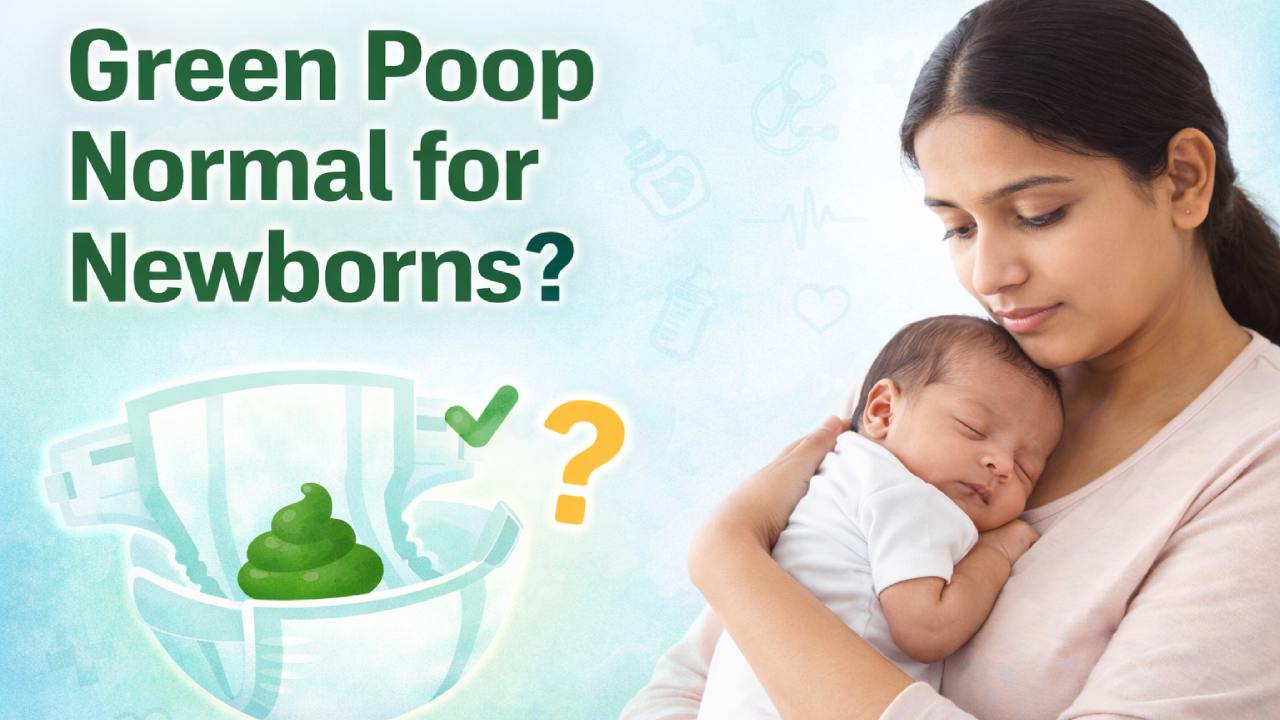Infant Congestion: When Your Baby's Stuffy Nose Becomes an Emergency
Verified By Dr. Ankur Chawla | 24-Sep-2025
Bringing a newborn into the world is such a joyful occasion, but it often comes with a fair share of worries for new parents. One common concern is infant congestion, particularly when your baby is struggling with a stuffy nose and cough. Watching a tiny baby sniffle, struggle to breathe, or have disrupted sleep due to nasal blockage can be distressing.
Is it normal? When should you worry? And what can you do to help? Dr. Ankur Chawla, Consultant Pediatrician at Kailash Hospital, Noida, leans forward urgently: "Every night in our ER, I see terrified parents carrying infants struggling to breathe through blocked noses.
What many don't realize is that infant congestion can turn deadly within hours if misjudged." With many causing respiratory distress in babies and Delhi-NCR's pollution worsening pediatric cases, this guide decodes life-saving interventions for infant stuffy nose emergencies.
Table of Content
Infant congestion refers to the build-up of mucus in Infant’s nose or chest, making it difficult for them to breathe. It can be classified as:
- Nasal congestion (stuffy or blocked nose)
- Chest congestion (mucus in the airways)
Because infants breathe primarily through their nose for the first few months of life, even mild congestion can lead to feeding problems, irritability, and poor sleep.
Dr. Ankur Chawla explains, “It’s common for infants to experience some nasal congestion in their early weeks. Their tiny nasal passages are easily affected by dry air, infections, or even breast milk reflux.”
An infant's nasal passages are very narrow as compare to adults. Some swelling can block the airflow. Dr. Chawla explains: "Babies are obligate nasal breathers. When congestion hits, they face a triple threat: underdeveloped cough reflexes, with inability to correct their posture, fragile airways, and immune systems that can't fight invaders yet."
Also read: Childhood Constipation: Causes, Remedies, and When to Seek Help
Understanding the underlying cause of your baby's congestion is key to choosing the right remedy. Some common causes include:
1. Dry Air
Low humidity levels, especially during winters, can dry out nasal passages and trigger infant congestion.
2. Common Cold or Viral Infections
A cold is the most common reason for infant stuffy nose and cough. Babies are more prone due to their developing immune systems. What may be just a common cold for older children or adult may be wom some for small babies.
3. Allergens or Irritants
Dust, smoke, perfume, or pet dander can irritate nasal passages and lead to infant stuffy nose.
4. Reflux
Milk reflux from the stomach into the nasal cavity may result in congestion and sneezing in some newborns.
Watch out for this nasal congestion in infant symptoms:
- Sniffling or noisy breathing
- Blocked or stuffy nose
- Difficulty feeding (as babies can’t breathe and suck simultaneously)
- Restlessness during sleep
- Mild coughing
- Slight fever (in case of viral infection)
Dr. Ankur Chawla emphasizes, “It’s important to observe your baby’s breathing pattern. If the nose is stuffy but the baby is feeding and sleeping fine, home remedies often help. But if symptoms worsen or feeding is impacted, consult a pediatrician immediately.”
Infant stuffy nose and cough aren't always benign. Rush to a paediatrics hospital in Noida if you see:
| Symptom |
Home Care |
ER Intervention Needed |
| Breathing Rate |
<40 breaths/min |
>40 breaths/min with chest retractions |
| Mucus Color |
Clear/white |
Thick green >3 days or bloody |
| Feeding Pattern |
80% normal intake |
Refusing feeds >2 sessions; dehydration signs |
| Sound |
Mild snuffling |
Wheezing, grunting, or high-pitched stridor |
"Blue lips or ribs sucking in with each breath means immediate ICU transfer," stresses Dr. Chawla. "At Kailash Hospital, we are ready to deal with any emergency that may require medical attention."
Also read: Is Your Teen Still Wetting the Bed? Learn What You Can Do Today!
While medications are not typically recommended for babies under 6 months, these home care techniques are both safe and effective:
1. Saline Nasal Drops
Over-the-counter saline drops are a first-line solution. They help loosening mucus, which makes it much easier to clear out.
- Lay the baby on their back.
- Tilt the head slightly back.
- Put 1–2 drops of saline into each nostril.
2. Use a Bulb Syringe or Nasal Aspirator
After applying saline, gently suction the mucus out using a rubber bulb or nasal aspirator.
- Use no more than 2–3 times a day to avoid irritation.
3. Use a Humidifier
A cool-mist humidifier in your baby’s room can moisten the air and relieve infant cold stuffy nose.
4. Steam Therapy
Sit with your baby in a steamy bathroom for 10–15 minutes to loosen nasal mucus. Although this may not be very soft due to delicate skin of babies. Please do not use streamers used for adult as it may result is fatal burn.
5. Elevate the Baby’s Head Slightly
Place a towel under the crib mattress to slightly elevate your baby’s head (never place pillows directly under the baby).
6. Keep the Baby Hydrated
Breastfeeding or formula feeding more frequently helps thin mucus and keeps the baby hydrated.
7. Avoid Irritants
Keep the baby's environment smoke-free, clean, and dust-free. Avoid strong fragrances and use mild baby-safe cleaning products.
Not all congestion needs medical attention, but watch out for these signs:
- Trouble feeding or sucking
- Fever (above 100.4°F in infants under 3 months)
- Wheezing or labored breathing & chest restless
- Coughing with phlegm
- Bluish lips or face
- Unusual drowsiness
Dr. Ankur Chawla cautions, “Parents should not ignore signs like persistent cough, wheezing, or poor feeding. These could point to conditions like bronchiolitis or pneumonia. Kailash Hospital, Noida has a dedicated pediatric team to handle such cases promptly.
At Kailash Hospital, one of the top paediatrics hospitals in Noida, babies with prolonged or severe congestion may undergo:
- Chest X-rays (if chest congestion is suspected)
- Pulse oximetry (to measure oxygen levels)
- CBC or viral testing
- Nebulization for wheezing
- Hospitalization in case of complications
Treatment depends on the diagnosis but usually includes hydration, nasal clearance, oxygen support (if needed), and close monitoring.
Also read: How to Handle Anxiety in Children?
Here are some steps to reduce the chances of infant stuffy nose and cough:
- Keep baby’s room humidified
- Avoid crowded places during flu season
- Limit exposure to sick individuals
- Clean your hands before touching the baby, use a mask if any one suffering from upper respiratory infections.
- Breastfeed to boost immunity
- Vaccinate as per pediatric schedule
Dr. Ankur Chawla adds, “Parental awareness and prompt action can reduce the duration and severity of infant congestion. Early consultation avoids complications and keeps the baby comfortable.”
Infant congestion can be challenging for both babies and parents. Whether its infant stuffy nose and cough, or signs of a cold, prompt action and proper care are essential. "Your baby’s blocked nose could hide a pneumonia," warns Dr. Ankur Chawla of Kailash Hospital, Noida. "When in doubt, let our top child specialists be your compass."
Let your little one breathe easier, sleep better, and grow healthier – with the right knowledge and expert care.



 +91-9711918451
+91-9711918451
 international.marketing@kailashhealthcare.com
international.marketing@kailashhealthcare.com







